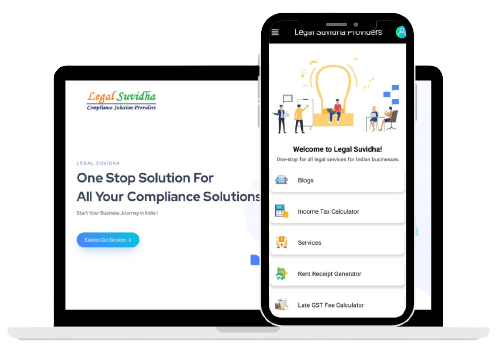ISO 27001: Information Security Management
ISO 27001: Information Security Management – A Simple Guide In today’s digital world, keeping sensitive information safe is more important...
Battery waste management refers to the process of safely and responsibly managing batteries that have reached the end of their useful life. This includes collecting, transporting, storing, recycling, and disposing of batteries in an environmentally friendly manner.

Happy Clients
Years Experience

Happy Clients
Years Experience
In August 2022, the latest Battery Waste Management Rules were introduced to replace the previous Batteries (Management and Handling) Rules from 2001. These regulations apply to anyone involved in the collection, transportation, segregation, or management of Waste Battery, including Producers, dealers, other entities, or consumers.
The new rules cover all types of batteries, including lead batteries, regardless of their chemistry, volume, material composition, shape, weight, or use, such as automotive, Electric Vehicle, Industrial, and Portable batteries. The updated provisions include new definitions, additional responsibilities, and authorization procedures.
| Environmental benefits | Battery waste management helps to prevent the release of hazardous chemicals and metals into the environment. Recycling batteries reduces the need to mine and extract new materials, conserves natural resources, and reduces greenhouse gas emissions |
| Public health benefits | Battery waste management helps to protect public health by minimizing the risk of exposure to hazardous chemicals and metals, which can cause a range of health problems, including respiratory problems, kidney damage, and neurological disorders |
| Economic benefits | Battery waste management can create new jobs in the recycling industry, contribute to the local economy, and reduce the cost of raw materials, which can benefit manufacturers and consumers |
| Compliance with regulations | Battery waste management helps to ensure compliance with environmental regulations and guidelines, reducing the risk of fines and penalties for non-compliance |
| Resource conservation | Battery waste management conserves natural resources by recovering valuable metals and materials from used batteries, which can be used to manufacture new batteries and other products |
Step 1: Collection: The first step is to collect used batteries from various sources, including households, businesses, and industries. These batteries should be sorted based on their chemistry, type, and condition to facilitate proper recycling or disposal.
Step 2: Transportation: Transporting the collected batteries to a recycling or disposal facility using proper safety measures and equipment. This is important to prevent any potential hazards during transit and ensure the safe handling of the batteries.
Step 3: Segregation: Separating batteries based on their chemistry, type, and condition to facilitate proper recycling or disposal. This is important as different types of batteries require different recycling or disposal methods.
Step 4: Recycling: Recycling is the preferred method of managing battery waste as it helps to recover valuable materials from the batteries, reduces the need for new material extraction, and prevents environmental pollution. The recycling process involves breaking down the batteries into their component parts, separating the materials, and processing them for reuse.
Step 5: Disposal: If batteries cannot be recycled, they must be disposed of in an environmentally friendly manner. The disposal method used will depend on the type of battery and the applicable regulations. Disposal methods may include landfill, incineration, or other methods that meet environmental guidelines.
Step 6: Record-keeping: Record-keeping is an essential part of battery waste management. It involves maintaining accurate records of the batteries collected, transported, recycled, or disposed of. These records help to ensure compliance with environmental regulations and guidelines and can assist in the tracking of the waste materials throughout the process.
1. License or registration: Depending on the jurisdiction, a license or registration may be required to collect, transport, or recycle batteries
2. Manifest or tracking document: A manifest or tracking document may be required to track the movement of the batteries from the point of collection to the recycling or disposal facility
3. Certificate of destruction or recycling: A certificate of destruction or recycling may be required to prove that the batteries have been disposed of or recycled properly
4. Safety data sheet: A safety data sheet may be required to provide information on the hazardous properties of the batteries and the safety measures that need to be taken during transportation, handling, and disposal
5. Environmental permits: Depending on the jurisdiction, environmental permits may be required to operate a battery waste management facility
6.Compliance records: Records of compliance with environmental regulations and guidelines may be required to demonstrate that the battery waste management is being conducted properly
Incineration, landfilling, solidification treatment, manual sorting, wet recovery technology, dry recovery technology, and bio-metallurgical technology are now the primary ways used to treat used batteries.
Due to its capacity to keep the balance between supply and demand within the power grid, batteries are essential in the transition of the world economy. Electricity powered by renewable sources is essential to combating climate change and decarbonizing the planet, which includes electrifying buildings, cities, and vehicles (e-mobility).
Certain batteries contain hazardous compounds that, if improperly discarded, might leach into groundwater or damage ecosystems. Safety is yet another justification for constantly recycling batteries. Batteries can overheat and catch fire if not disposed of correctly.
Lithium-ion batteries and the devices they are contained in should NOT be disposed of in regular trash cans or recycling bins.
#answer
#answer
#answer
#answer
With a commitment to exceeding expectations and a passion for delivering results, choosing us means choosing a partner dedicated to your success.

We provide free of cost consultation and legal advice to our clients.

We are a team of more than 15+ professionals with 11 years of experience.


All our services are online no need you to travel from your place.

There are no hidden & extra charges* other than the quote/invoice we provide.

We aim that all our customers are fully satisfied with our services.

We value your time and we promise all our services are delivered on time.

We provide free of cost consultation and legal advice to our clients.
In this Journey of the past 14+ years, we had gained the trust of many startups, businesses, and professionals in India and stand with a 4.9/5 rating in google reviews.We register business online and save time & paperwork.
Trustindex verifies that the original source of the review is Google. Mayank & the Legal Suvidha team are fantastic. They really try to understand the business like insiders and don't give you templatized solutions. The staff are extremely supportive and go out of their way to help you. I would recommend Mayank to anybody new to the startup ecosystem!Trustindex verifies that the original source of the review is Google. Great experience with smooth process during the startup india registration Excellent coordination and teamwork with effective implementation in very limited timeTrustindex verifies that the original source of the review is Google. Sound expertise, good coordination, efficient and timely execution.Trustindex verifies that the original source of the review is Google. Good service and very helpfulTrustindex verifies that the original source of the review is Google. We had a great experience working with the LegalSuvidha team - we have used them for both our Pvt Ltd and LLP formation and their team has been very proactive, knowledgeable, prompt and helpful. They helped with all DSCs as well and couriered them to us. Very professional and thorough. We also got our Startup India , MSME registrations through them promptly. Overall highly recommended. Special callout to Nidhi, Saloni, Anjalin, Shreya and Priyanka for promptly helping us throughout the process.Trustindex verifies that the original source of the review is Google. I am writing to thank you for the quality of service provided by your company. We sincerely appreciate your efficient, gracious customer service, the level of detail and accountability you have demonstrated and the way you conduct business as a whole. A special Thanks to Ms Saloni for her great help throughout.Verified by TrustindexTrustindex verified badge is the Universal Symbol of Trust. Only the greatest companies can get the verified badge who has a review score above 4.5, based on customer reviews over the past 12 months. Read more


Explore more of our blogs to have better clarity and understanding
of the latest corporate & business updates.
ISO 27001: Information Security Management – A Simple Guide In today’s digital world, keeping sensitive information safe is more important...
Operating an online store comes with numerous benefits—but also regulatory obligations. Securing the right licenses and permits is essential to...
Directors shape a company’s governance and strategic direction. Among board members, Executive Directors and Non‑Executive Directors (NEDs) play distinct yet...
The Articles of Association (AOA) form the backbone of a company’s internal governance, setting out the rules, rights, and responsibilities...
Selecting the optimal legal form is a critical decision when launching your U.S. venture. Both LLCs and Corporations offer liability...
Expanding your U.S.-based business into India unlocks access to a vast consumer market, a skilled workforce, and cost advantages—but also...
Here are some answers to potential questions that may arise as you start your business.
Register your business, obtain necessary licenses, and fulfill tax obligations.
Consider factors like ownership, liability, and tax implications to choose from options like sole proprietorship, partnership, or company registration.
Choose a unique business name, obtain required IDs like Director Identification Number (DIN), and file incorporation documents with the Registrar of Companies (ROC).
Obtain GST registration, trade licenses, and any industry-specific permits required to operate legally.
Maintain accurate financial records, file tax returns on time, and adhere to the tax laws applicable to your business.
Yes, startups in India can benefit from various government schemes offering tax exemptions, funding support, and incubation facilities.
Secure patents, trademarks, or copyrights to safeguard your intellectual assets from infringement or unauthorized use.
Challenges include navigating bureaucratic hurdles, complying with complex regulations, and competing in a crowded marketplace.
Looking For More Information? Contact Us
Sign up to receive email updates on new product announcements, special promotions, sales & more.
Redefining the experience of legal services. Now all Professional Services in a Single Click !


Copyright © 2025 Legal Suvidha Providers LLP. All rights reserved.
